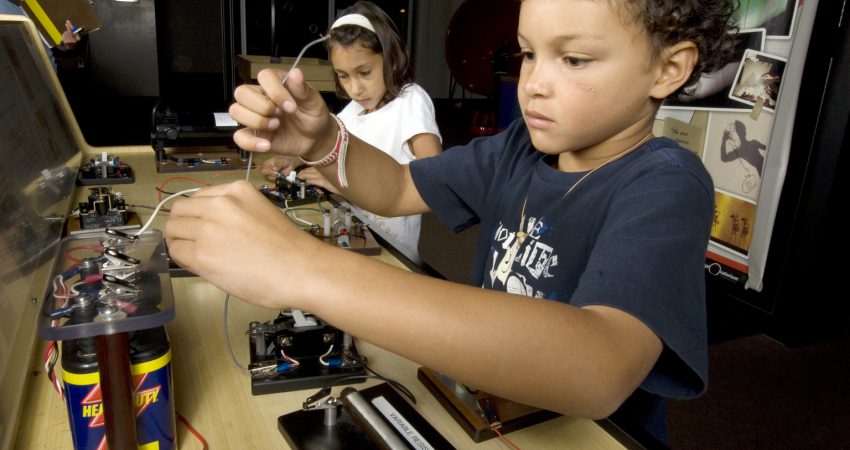
By Fan Kong - March 2011
PAPER CITATION
McNeill, K., & Krajcik, J. (2009). Synergy between teacher practices and curricular scaffolds to support students in using domain-specific and domain-general knowledge in writing arguments to explain phenomenon, Journal of the Learning Sciences, 18 (3), 416–460.
This article reports on a study that reveals some of the complexities of supporting children's understandings of scientific argumentation. The article could be useful for ISE educators seeking to incorporate scientific argumentation processes and skills into their programs for middle-school-aged children. Specifically, the article notes the benefits of context-specific (rather than generic) prompts and questions, and the need for ongoing professional development to support teachers to support scientific argumentation.
There has been a great deal of work on scientific argumentation over the last several years. This work is premised on the idea that science is a collaborative activity that depends on people offering explanations about how and why phenomena occur, and then debating those claims based on both evidence and reasoning. For ISE educators, framing scientific literacy around the ideas of explanation and argumentation may allow learners to develop a richer understanding of content and, importantly, may support views of science as an active, evolving, evidence-based body of knowledge and way of reasoning, rather than as a static set of facts.
This article examines how instructional units focused on explanation and argumentation can promote students' understanding of science concepts in the classrooms of 6 middle school teachers for 578 students in an eight-week chemistry unit. The study collected data around a model of argumentation based on students' abilities to make claims, provide evidence, and demonstrate reasoning. Specifically, the researchers looked at different types of curricular scaffolds and how teachers' instructional enactments of those scaffolds affected students' understanding of scientific content and explanation. Scaffolds are tools or practices, such as written prompts or reflection questions, that promote student learning of complex problem solving or reasoning. The study found that students given the context-specific scaffolds (prompts with hints about the specific task and what content knowledge to use) showed greater learning gains in their explanation, evidence, and reasoning score than those given the generic scaffolds (prompts that provided a general framework for scientific explanations regardless of the science content area). The students also showed a greater understanding of science content in the context-specific group.
The researchers present six case studies of teacher instructional practices, acknowledging that classrooms are complex systems and that teachers play an essential role in student learning. Context-specific scaffolds resulted in greater student learning in terms of students' ability to write scientific explanations only when the teachers' instructional practices provided general support for making claims, providing evidence, and demonstrating reasoning. Although there has been little research comparing different types of scaffolds in the classroom, this study provides further support that domain-general and domain-specific knowledge work together with domain-general and domain-specific instructional supports
For further reading, see the work of Perkins and Salomon (1989) in the importance of both domain-general and domain-specific knowledge:
Perkins, D. N. & Salomon, G. (1989). Are cognitive skills context-bound? Educational Researcher, 18 (1), 16-25.




